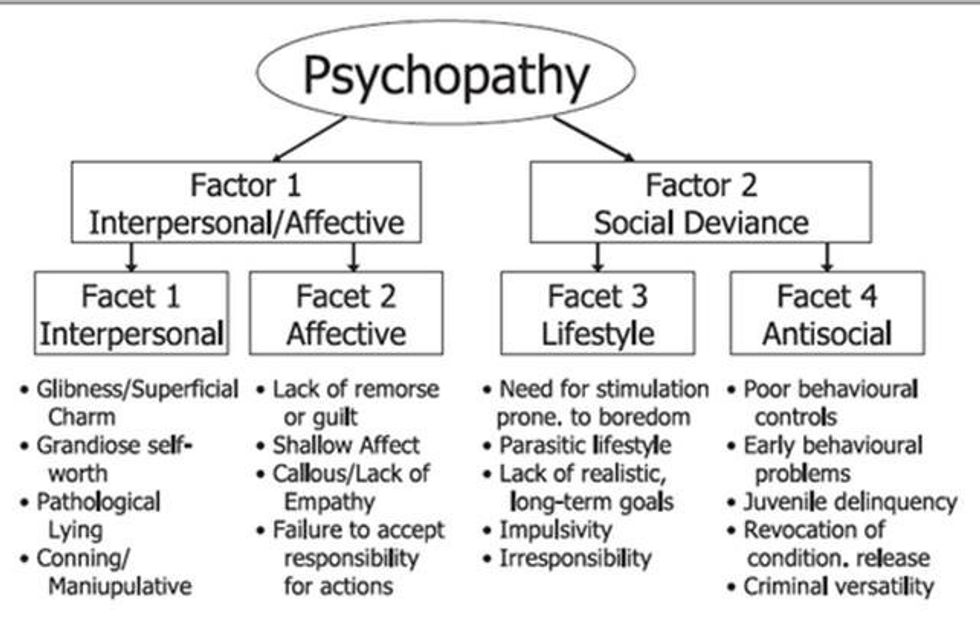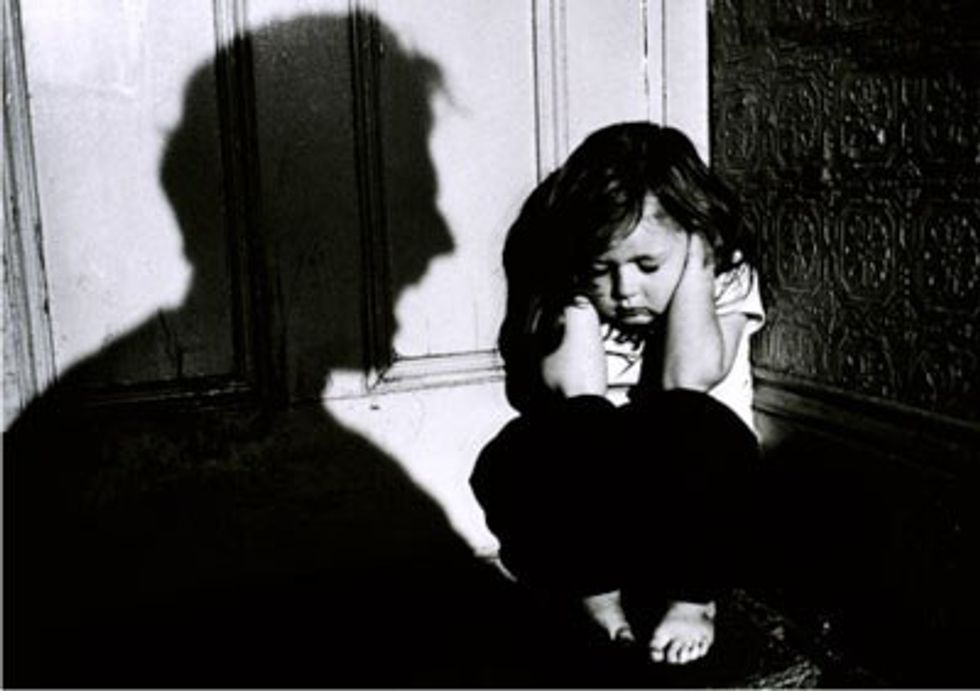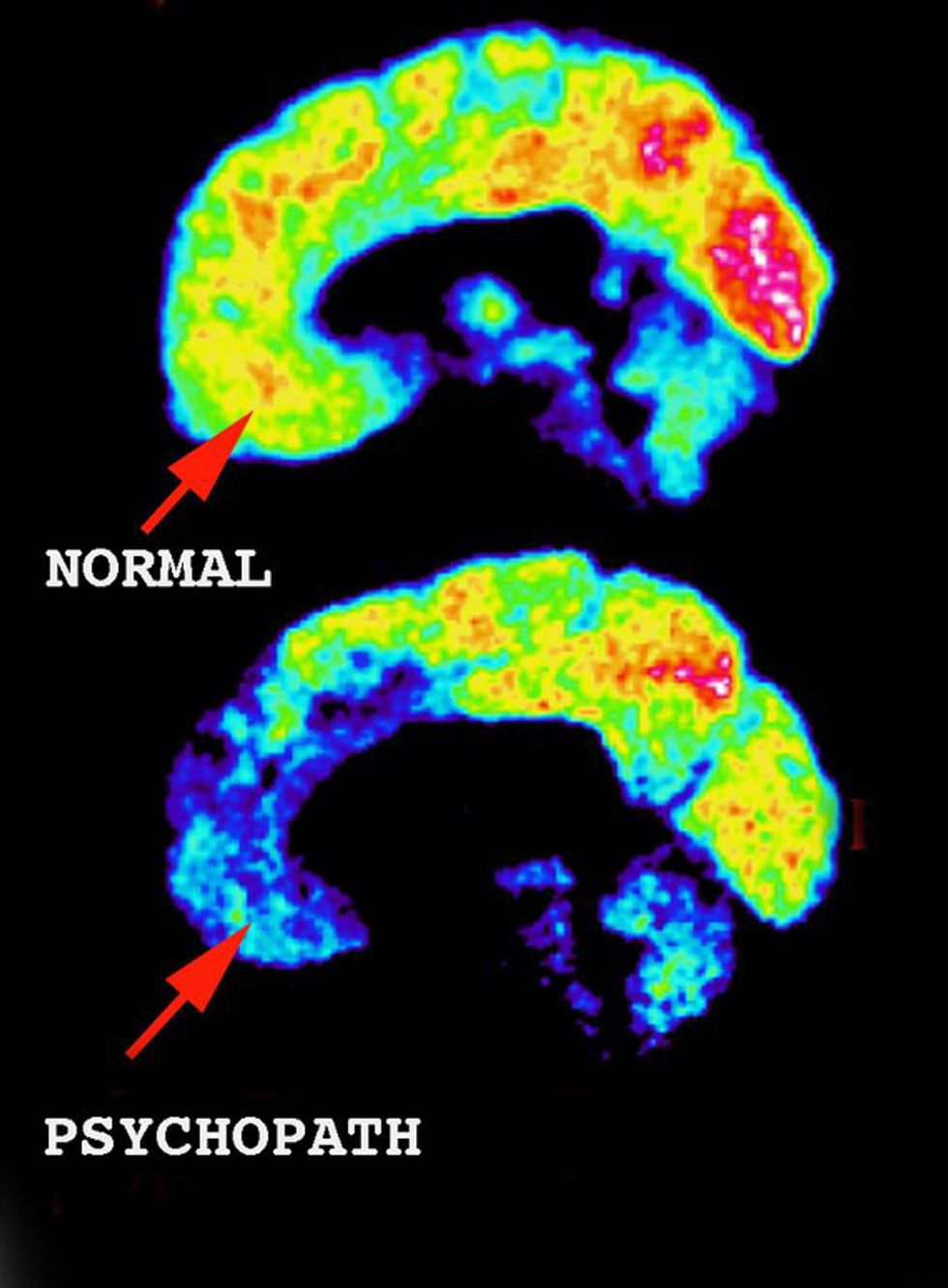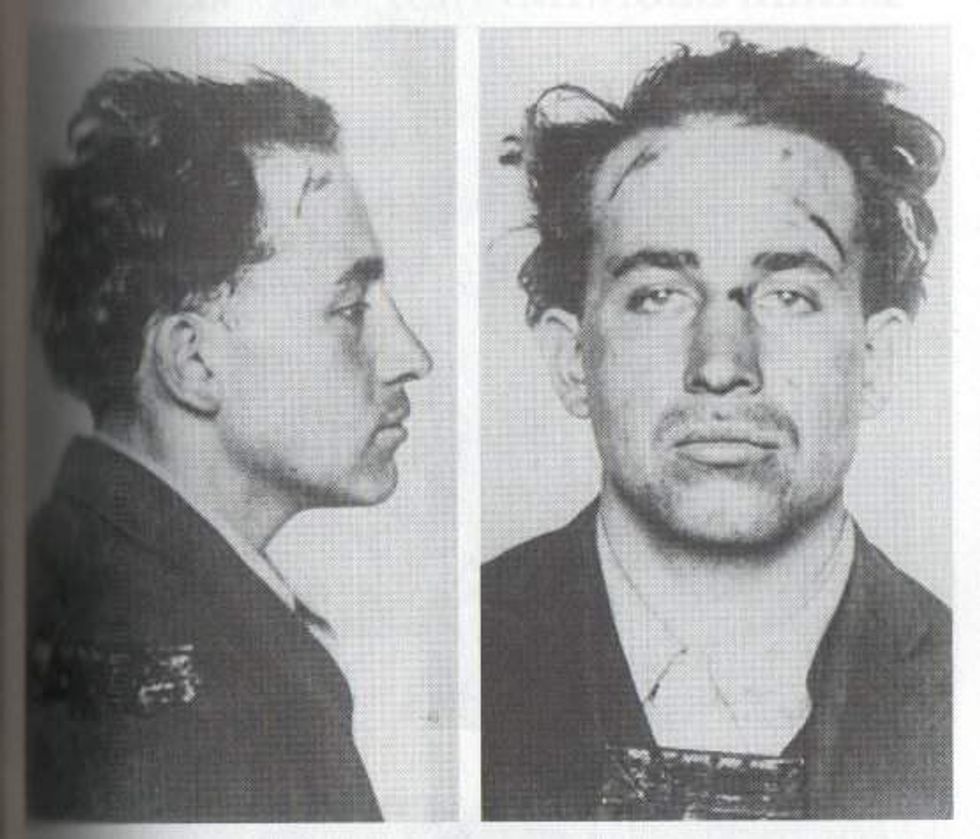Have you ever wondered whether a little part of you is a psychopath? Have you ever doubted your ability to empathize or feel? Have you ever thought that being a psychopathyis "cool"?
If you are one of those people who thinks being a psychopath is cool or if you don't know much about what psychopathy even means, here are a few facts:
Recommended for you
1. Psychopathy is not a classified disorder in the Diagnostic and Statistical Manual of Mental Disorders (DSM).
Most psychiatrists and psychologists use the term "antisocial personality disorder" instead of psychopathy, since it is the most similar disorder in terms of symptoms. In the DSM, antisocial personality disorder is defined as having the habit of violating the rights of others without feeling any remorse.
2. About 1% of the population is psychopathic, and men make up almost all of that population.
That percentage rises up to 4% when solely looking at CEOs and 25% when solely looking at male offenders in federal correctional settings.
3. Its symptoms include delinquency, superficial charm, lack of remorse or guilt and impulsivity.
4. Not all psychopaths are bad. There are people who are successful psychopaths.
Unsuccessful psychopaths are usually violent, convicted criminals who have generally had poor childhood experiences. Successful psychopaths are people who may have been arrested but not convicted, businessmen, and even political leaders who have mostly had a "normal" upbringing with stable family environments.
5. Psychopathy can be hereditary.
Twin studies revealed that having a psychopathic twin increases your chances of becoming a psychopath by 40%.
6. Environment, especially upbringing, has a big effect on psychopathy.
Another fact deduced from twin studies is that those who have genetic predisposition for psychopathy usually only become one in the presence of an environmental trigger, such as maltreatment. This means genetic risk alone may have little effect on behavior in favorable living conditions.
7. There are structural and functional abnormalities in the brain regions of psychopaths that are involved in emotional processing.
Brain imaging studies have shown that there are abnormalities in the regions that control empathy, regret, reasoning, recall of emotional memories, and fear.
8. There is no useful treatment for psychopathy.
Treatment not only seems not to work, but there is also evidence that some kinds of treatments, such as group therapy, make matters worse.
9. There is a test you can take, called the Hare Psychopathy Checklist-Revised (PCL-R), that can determine how psychopathic you are.
Scoring higher than 30 (out of 40) on this list qualifies you as a psychopath. Violent psychopaths tend to score a lot higher.
Click here for a similar version of the psychopathy checklist if you want to check out your score.
10. All prisoners, psychopathic or not, tend to score higher on psychopathy tests than the general population.
The general non-prison population scores a median of 6.6 on the Hare scale, while the average score by a North American inmate is 22.1.
11. The average incarcerated psychopath has been convicted of committing four violent offenses by the age of 40.
The criminal activities may start as early as at the ages of 11-12.
12. Some famous psychopaths are Josef Mengele, Ted Bundy, and Earle Nelson.
Josep Mengele was a German physician in Auschwitz concentration camp during World War II. He was notorious for performing deadly experiments on prisoners, particularly twins. Some of his experiments included unnecessary amputation of limbs, intentionally infecting a twin, and transfusing one twin's blood into the other.
Ted Bundy was a serial killer, kidnapper, and rapist who assaulted and murdered many women. Shortly before his execution in 1989 he confessed to 30 homicides committed in seven states.Known as the gorilla killer, Earle Nelson is another serial killer and rapist who has numerous crimes.



























